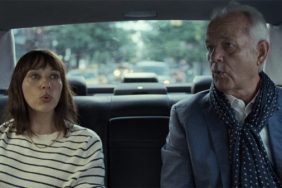
Writers are often told to “write what you know,” and so it makes a lot of sense that so many books, movies, plays and TV shows are about writers. But writing is a difficult experience to express visually, and even more difficult to dramatize to those who may not write themselves, and so many movies about writers – like, it must be said, many movies in general – suck out loud.
But some are genuinely great. Some of them are among the best movies ever. But what is The Best Movie About Writers Ever? We asked Crave’s critics – William Bibbiani, Witney Seibold and Brian Formo – to pick one film, and only one film, that they feel epitomizes the genre and the subject of writers and writing, and they each picked wildly different motion pictures about different aspects of the creative process.
Find out what they picked below, tell us what your favorites are, and come back next Wednesday for another highly debatable installment of Crave’s The Best Movie Ever!
Check Out: The Best Movie Ever: Adam Sandler
Brian Formo’s Pick: Memories of Underdevelopment (1968)

You rarely see Sergio (Sergio Corrieri) write in Tomás Gutiérrez Alea’s Memories of Underdevelopment—you barely see him do anything except walk through post-Bay of Pigs Havana with confusion, nostalgia, and a prowl for the young women who remain. Due to political upheaval, he doesn’t know what to write because, as a bourgeois playboy, he doesn’t know what his role is within new Cuba. Many films concerning writer’s block will tell lengthy, woeful details of a writer’s blockage. Alea lets you feel it. What’s ye olde writer’s adage? Show don’t tell.
Cuba was romanticized by many American and European writers pre-Castro as a place to drink, work cheaply, and briefly fall in love with local women. After his wife and children have fled to America, Sergio pursues his own 16-year-old conquest, Elena (Daisy Granados); he dresses her in his wife’s European clothes and takes her to Ernest Hemingway’s former residence. He says Hemingway shot and mounted animals so that he wouldn’t have to kill himself. We feel that Sergio continues to live so he cannot be placed on a wall as a stuffed bourgeois bust. But Sergio cannot have an audience for his work because it is neither pro or anti regime. He sees both sides and that’s his blockage.
Cuba’s most famous film from the 1960s was I am Cuba, but—as beautiful as it was—it was made by the Russian government. Memories of Underdevelopment is perhaps the most important Cuban film because it gives us a director who did indeed romanticize the revolution, but the isolation that came with it—through embargoes, and attempted invasions—had consequences for artists. Sergio wants to Europeanize Daisy, and Alea’s film feels akin in structure and despondent airiness to Italy’s 1960s post-Mussolini films from Michelangelo Antonioni and Federico Fellini. Sergio’s blockage comes from realizing outside influences will no longer be felt in Cuban art forms. And any isolated art form will become underdeveloped.
Check Out: The Best Movie Ever: Inspirational Movies
Witney Seibold’s Pick: Quills (2000)

Writing is a tricky process, and I’m not just saying that to flatter myself. Writing is simultaneously the most solitary of arts, and the most social. When you write, you enter into your own mind in order to create a voice, create the voices of other characters, to shape a worldview of your own devising. More than any other art form or human activity, writing is the most assured way to seal yourself off from other people. But, at the same time, it is also the best way to extend an empathetic hand to another human being. Through writing, both readers and writers seek to make that crucial contact, that pure sharing of ideas. Examining “the process” is usually most fascinating when postulating about a known author whose process we have only previously been able to speculate about. Sometimes the result is cute and twee (Shakespeare in Love comes to mind), and sometimes the process is known to historians, but is bolstered by the dramatization (I’m fond of Young Goethe in Love).
There are few films, however, that so directly tackle the question of why writers write as Philip Kaufman’s incendiary drama Quills, based on the play by Doug Wright. In Quills, we delve into the creative process and the artistic urges of the world’s most notorious author of violent pornography, The Marquis de Sade (played deliciously by Geoffrey Rush). De Sade was, of course, a blankly cynical, perhaps evil, stridently atheist, and unforgivingly sexual hedonist who believed in a philosophy of Do What Thou Wilt. De Sade’s work is, even in intellectual circles, of dubious merit. There is no doubt that De Sade was talented, and held a very strong and very particular worldview, but it can be debated as to how valuable his work is, seeing as it’s beyond dirty and often deliberately repellent.
Quills seeks to answer – or at least wrestle with – the questions of the value of what might be deemed “unpopular speech.” Much of Quills deals with the pop impact and governmental chagrin surrounding De Sade’s work. But the central drama is about how De Sade, as he confesses to a naïve young priest (a great Joaquin Phoenix), must write. There is darkness within him, as we know. But the dark stories do not supplement his perverted crimes, but seek to keep them focused and, perhaps, at bay.
Or, perhaps, we just need to be confronted from time to time. And we need a freak – a true criminal outsider – to give us that.
Check Out: The Best Movie Ever: Sir Ben Kingsley
William Bibbiani: The End of the Tour (2015)

Movies about writers can be poetic (Il Postino) and they can be insufferable (Paris When It Sizzles). They emerge from the minds of writers before they can emerge on screen, and asking a writer to get inside their own process and make it interesting, as opposed to just self-serving, can be a tricky and often insurmountable task for even the best wordsmiths.
But good ones are made, and made fairly often. Adaptation deserves an honorable mention here, as does Misery and Deconstructing Harry and Naked Lunch, but as much as it may seem questionable, I have come to the conclusion that the film that opens this weekend, The End of the Tour, is the best movie about writers, and writing, that I have ever seen. James Ponsoldt’s film about author David Lipsky (Jesse Eisenberg) interviewing the far more successful author David Foster Wallace (Jason Segel) is a gripping, conversational saga in which two people – who each make a living communicating their thoughts – are at a loss to communicate with each other. Petty jealousies, disparate experience, and the conflict between honest literary expression and goal-oriented, headline focused journalism all collide.
Here, The End of the Tour seems to be telling us, are two men with a lot in common, who should be friends. But the ego necessary to think that someone might actually want to read your novel, and the introspection necessary to write a good one, make for awkward bedfellows. Wallace struggles to explain his work and honestly connect the acclaimed novel Infinite Jest to his own life experiences. Lipsky’s fascination with Wallace, and admiration for his work, barely hold his own personal insecurities in check. And ever present is the tape recorder, capturing every nuance forever but preventing either man from ever feeling sufficiently at ease to say what really needs to be said.
The End of the Tour is about writing, writers, and the unique struggles they encounter in their lives and work. I have never seen another movie tackle those subjects with the same degree of insight, or humility, or grace.








